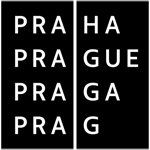A2 Mozart. Janáček. Brahms
CZK 900 | 760 | 580 | 300 (SL/E*) | CZK 150 (ST*)
*SL/E partial view and organ gallery above the stage
*ST standing
“My musical creed is in the key of E-flat Major and contains three Bs in its key signature: Bach, Beethoven and Brahms!”
This was how the iconic conductor Hans von Bülow summed up his musical preferences at the end of the 19th century. And he went even further: in 1880 he described Bach as the father, Beethoven as the son and Brahms as the Holy Spirit of classical music. It was indeed Bülow who added Johannes Brahms to this trio – perhaps he already had an inkling of the attention Brahms’s music would receive even decades after his death.
We will be focusing on the youngest of the seminal ‘Bs’ during this season as Johannes Brahms occupies a fascinating position in the history of music. As an exponent of the Classical-Romantic synthesis, he drew from the tradition of the classics and incorporated new (for example, expressive) techniques. He thus followed on from Beethoven while at the same time standing in opposition to Richard Wagner and his followers, and inspiring and supporting a number of other great talents, including Antonín Dvořák.
His Symphony No. 1 in C minor is also a direct expression of Brahms’s admiration of Beethoven. He spent several years composing it, paralysed by the idea that Beethoven was unsurpassable in the genre of symphony.
Florian Krumpöck will appear here in a dual role – as conductor as well as the soloist in Mozart’s captivating Concerto for Piano and Orchestra in C minor, whose solo part Mozart wrote for himself.















